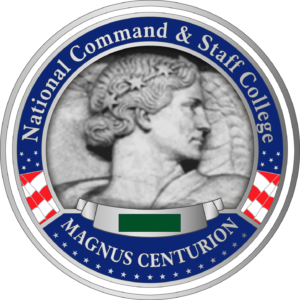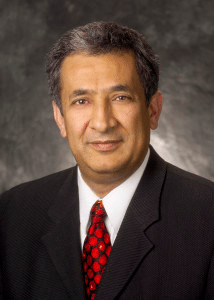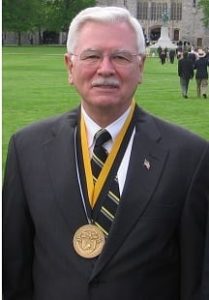 Your National Command & Staff College develops present and future Leaders through modern learning experiences that build and promote community safety and mutual trust, and maximize officer safety, wellness, and performance while reducing liability and risk.
Your National Command & Staff College develops present and future Leaders through modern learning experiences that build and promote community safety and mutual trust, and maximize officer safety, wellness, and performance while reducing liability and risk.
Dear Candidates,
On behalf of the Commissioners, Faculty, and Staff of the National Command & Staff College, I welcome and congratulate you on your decision to participate in the Command & Staff Leadership program of the National Command & Staff College.
Expect a life-changing experience. You are about to begin a unique learning experience that, if you choose, will change you today, tomorrow, and into the future! What you learn will help you improve individually and professionally – for a lifetime.
You have been chosen from the many. We are very excited that your agency has chosen you for this nationally recognized comprehensive executive leadership program, which will build your knowledge, skills, and especially practical application of law enforcement leadership responsibilities, trends, and foresight. With the immediate and continuous use of what you learn, you will impact those around you, your organization, and the community in remarkable ways. And you will become more.
This curriculum is unique and forward thinking. It is based on proprietary educational and nationally certified content. It is complemented by the United States Special Operations Command (USSOCOM) training and the West Point Behavioral Science and Leadership PL300 course, which have been developing our military leaders since the early 1990’s. It has three unique but sequential educational phases to include E-learning, Residency, and a Capstone Project (a practical, relevant group research paper prepared for the publishing process). Each phase of your educational journey is a shared learning experience where you, your classmates, and your instructors synergize ideas and processes into practical action that affect the most pressing present and future issues in public safety.
On a personal note, I recently read a book entitled “One Thing” by Gary Keller and Jay Papasan. They describe how:
“… on 11/13/2009, the Weijers Domino Productions coordinated the world record domino fall by lining up 4,491,863 dominoes in a dazzling display. A single domino on that day set in motion a domino fall that cumulatively unleashed more than 94,000 joules of energy, which is as much energy as it takes for an average-size individual to do 545 push-ups.”
Be that “single domino” of leadership transformation. With that said, this course is designed to transform you into the vanguard of today’s and tomorrow’s professional policing leaders. You will validate and gain theoretical, scientific, and behavioral intellect with practical skills to help you succeed in an ever-changing, dynamic environment.
The course is challenging – as it must be. It is the course you have been wanting. You were chosen because you deliver “Results with Confidence.” I say this because I know you on a personal level. You remind me of the Delta Force troops, Rangers, Green Berets, US Marine Corps Special Operations Command (MARSOC) members, and Navy SEALs I have had the honor of working with and teaching over the years.
Nothing is impossible for you. You embody the fact that a successful career is not a continuous campaign to promote yourself, which is unbelievably stressful. It is a matter of a thousand little things done well and perhaps a little better than you did them before as you serve your calling. Being YOU means you are aware of all the little and not so little noble acts that can be done throughout the day with intellect, mind, body, and spirit. It is the difference between slogging through the day and feeling accomplished after a shift – It is the practice of simply becoming MORE. YOU INSPIRE ME!
Let me say sincerely, we are truly honored to have you in this course and upon graduation, as a MAGNUS Commander, graduate of the National Command & Staff College.
With Warm Regards and Continuous Success to You,
Mitch
Mitch Javidi, Ph.D., Chancellor
________________________________________________
 Mitch is an envisioneer with over 30 years of practical and hands-on Leadership Development experience in diverse industries including Academia, Military, Law Enforcement, Government, and Technology. As a globally recognized leader, he is the founder of the National Command & Staff College, Institute for Credible Leadership Development, and the Criminal Justice Commission for Credible Leadership Development.
Mitch is an envisioneer with over 30 years of practical and hands-on Leadership Development experience in diverse industries including Academia, Military, Law Enforcement, Government, and Technology. As a globally recognized leader, he is the founder of the National Command & Staff College, Institute for Credible Leadership Development, and the Criminal Justice Commission for Credible Leadership Development.
He has trained at the Joint Special Operations Command “JSOC” and the US Army Special Operations Command “USASOC.” He was awarded the honorary member of the United States Army Special Operations Command in 1999 and honorary Sheriff by the National Sheriffs’ Association in 2016. He served as a tenured Professor at NC State University for 16 years before taking an early retirement but continues to serve as an Adjunct professor without pay (by choice) at both NC State and Illinois State Universities. He is a member of the “Academy of Outstanding Teachers and Scholars” at NC State University and the Distinguished 2004 Alumni of the University of Oklahoma.
Mitch is the developer of “MAGNUS OVEA,” a general theory of Officers’ Wellness, Resiliency and Leadership. He is a published scholar with over 890+ conference presentations worldwide to include presentations for Fortune 500 companies as well as top Public Safety organizations including FBI NAA, Hispanic American Police Command Officers Association (HAPCOA), HIDTA, National Tactical officers Association (NTOA), California Police Chiefs Associations, National Sheriffs Association (NSA), Women Leadership in law Enforcement (WLLE), California Chief of Police Association (CATO), and many other national and state associations. As well, he has provided educational programs for NYPD, LAPD, Ventura County Sheriff’s Office, San Bernardino County Sheriff’s Office, Ogden Police Department, NC State Patrol, Harris County Sheriff’s Office, Walnut Creek Police Department, and 200+ other agencies nationwide.
His most recent co-authored article was published in the Police Chief Magazine. His select books include “Deliberate Leadership: Achieving Success Through Personal Styles,” “Handbook of Research on Effective Communication, Leadership, and Conflict Resolution”, and “Moral Compass for the Law Enforcement Professionals”. His coauthored an article entitled “Human Factors: Police Leaders Improving Safety While Developing Meaningful Public Trust” coauthored with Dr. Anthony Normore and Lt. Darius Bone was published by the FBI Law Enforcement Bulletin with another pending. Click here for publications.
Dr. Javidi was the recipient of prestigious “Person of the Year” award by the National Society of Accountants ~ Senator William Victor “Bill” Roth, Jr. “Roth IRA” received the award in the following year.,
Dear Candidates,
Our promise is to address the needs of a storied profession that dates back centuries – law enforcement. Here at NC&SC, our entire team of professionals consider effective contemporary police training, preparation and development a great mix of tried and true methods combined with application of the latest cutting-edge theories and technologies. The profession is growing and advancing to meet the needs of the 21st century environment. It is a growth industry, and the future of the profession could not be brighter. Today, the role of police is evolving to encompass broader areas of influence, from local community problems to global issues. The impact an officer can have on a community goes far beyond arrest and prosecution of criminals. The focus has become more on change leadership, competence, problem solving, analysis, and collaboration among community groups and other police agencies.
Changes affect police responsibilities, police organizational structure, qualification requirements and police identity and understanding. The challenges and expectations regarding the way in which the police should perform their duties, the general circumstances under which police work is done, the regulatory framework for acting and police performance measurement have become more demanding than before. This is not only true for external duties, but also for the organizational and leadership culture. Police work and police responsibilities are thoroughly viewed under aspects of legitimacy. There are close links between this kind of requirements and high ‘expectations from the public whose police service-both the whole organization and the individual officer-should have a problem-oriented approach, act in accordance with the situation, in an anticipative, competent way and with a sense of social responsibility. The public scrutiny currently placed upon police will require leaders to be more focused and vigilant than ever before including how to best deal with issues such as anti-terrorism, body worn camera scrutiny, civil unrest, federal agency involvement/oversight, and social media.
We welcome regular professional and organizational feedback from you as you undertake this critical learning journey. Your learning growth and development are important to us. We promote and foster a culture of continuous improvement, and are here to serve and help you be successful.
Thank you.
Tony
Dr. Anthony Normore, President
________________________________________________
 Anthony H. Normore, Ph.D is professor of educational leadership, and department chair of Graduate Education at California State University Dominguez Hills in the Los Angeles area. Dr. Normore’s research focuses on urban leadership development in the context of ethics and social justice. He is the author of 20+ books including, Leading against the grain: Lessons from visionaries for creating just and equitable schools (2018, Teachers College Press); Foundations of educational leadership: The key to developing excellent and equitable schools (2017, Routledge);The dark side of leadership: Identifying and overcoming unethical practice in organizations (2016 Emerald); Handbook of research on communication, leadership, and conflict resolution (2016, IGI Global publishers). He has published 150+ book chapters, reviews, and peer-reviewed articles in numerous professional leadership journals, and 300+ professional conference presentations. Dr. Normore is the AERA 2013 recipient of the Bridge People Award for Leadership for Social Justice Special Interest Group at the American Educational Research Association for his partnership work in law enforcement, corrections, and education including his leadership work with incarcerated men at Men’s Central Jail at the Los Angeles County Sheriff’s Organization. He is also the chair of the criminal justice commission, and co-creator of the Credible Leadership Development program with the International Academy of Public Safety. The program was piloted with Los Angeles Police Department. Dr. Normore is the 2015 recipient of the Don Willower Excellence in Research Award at Penn State University for his work on leadership, social justice, and ethics in education.
Anthony H. Normore, Ph.D is professor of educational leadership, and department chair of Graduate Education at California State University Dominguez Hills in the Los Angeles area. Dr. Normore’s research focuses on urban leadership development in the context of ethics and social justice. He is the author of 20+ books including, Leading against the grain: Lessons from visionaries for creating just and equitable schools (2018, Teachers College Press); Foundations of educational leadership: The key to developing excellent and equitable schools (2017, Routledge);The dark side of leadership: Identifying and overcoming unethical practice in organizations (2016 Emerald); Handbook of research on communication, leadership, and conflict resolution (2016, IGI Global publishers). He has published 150+ book chapters, reviews, and peer-reviewed articles in numerous professional leadership journals, and 300+ professional conference presentations. Dr. Normore is the AERA 2013 recipient of the Bridge People Award for Leadership for Social Justice Special Interest Group at the American Educational Research Association for his partnership work in law enforcement, corrections, and education including his leadership work with incarcerated men at Men’s Central Jail at the Los Angeles County Sheriff’s Organization. He is also the chair of the criminal justice commission, and co-creator of the Credible Leadership Development program with the International Academy of Public Safety. The program was piloted with Los Angeles Police Department. Dr. Normore is the 2015 recipient of the Don Willower Excellence in Research Award at Penn State University for his work on leadership, social justice, and ethics in education.
His research appears in numerous academic journals including: Journal of School Leadership, Journal of Educational Administration, Values and Ethics in Educational Administration, Journal of Authentic Leadership in Education, International Journal of Leadership in Education: Theory and Policy, Educational Administration Quarterly, Leadership and Organizational Development Journal, International Journal of Educational Management, Canadian Journal of Education Administration and Policy, International Journal of Urban Educational Leadership, Educational Policy, and Journal of Research on Leadership Education. Dr. Normore’s police articles are published in law enforcement venues including, FBI Law Enforcement Bulletin, Police Chief, California Peace Officers Association, Peace Officers Research Association of California, California Law Enforcement Journal, Law Enforcement Today, and Policing: International Journal of Theory and Practice.
My Friends,
You are doing very important work for America. Our most precious value is liberty for all. But liberty requires order and order is established through the law. Police organizations preserve our order and hence our liberty. So that makes the work of developing leaders noble work. Good police leaders need to frequently remind those they lead of the honorability of what they do lest they descend into cynicism and, in the worst case, insensitivity and even brutality.
The theoretical framework of this unique and forward-looking educational curriculum was researched and assembled in the later 1980’s by my colleagues and myself at the US Army West Point, known as the “West Point Leadership” program. The model has successfully shaped our military leaders for nearly three decades and will continue to do so. The West Point curriculum combined with the comprehensive proprietary modules developed for the Command and Staff College encompass some of the most important, proven leadership developments in use. This course takes the West Point Leadership course to the next level and into this new century. BRAVO to the College and you for defining and carrying forward the future of Law Enforcement Leadership Education and Development.
I look forward to the opportunity of meeting you in person at one of the College’s national meetings.
Regards,
Howard T. Prince II, Ph.D.Loyd Hackler Chair in Ethical LeadershipLyndon B. Johnson School of Public AffairsThe University of Texas at AustinUS Army Brigadier General (Ret.)Honorary Commissioner, The National Command & Staff College
________________________________________________
 Dr. Prince is a Clinical Professor and holds the Loyd Hackler Endowed Chair in Ethical Leadership in the Lyndon B. Johnson School of Public Affairs (LBJ School) at the University of Texas at Austin. He joined the LBJ School in September 1999 and was the founding Director of the Center for Ethical Leadership. He has received numerous teaching awards, including the Texas Excellence Teaching Award as the outstanding teacher in the LBJ School for AY 2001-2002 by nomination of the student body. In 2008 he was chosen by The Eyes of Texas, a student organization, for The Eyes of Texas Excellence Award for outstanding contributions to student life.
Dr. Prince is a Clinical Professor and holds the Loyd Hackler Endowed Chair in Ethical Leadership in the Lyndon B. Johnson School of Public Affairs (LBJ School) at the University of Texas at Austin. He joined the LBJ School in September 1999 and was the founding Director of the Center for Ethical Leadership. He has received numerous teaching awards, including the Texas Excellence Teaching Award as the outstanding teacher in the LBJ School for AY 2001-2002 by nomination of the student body. In 2008 he was chosen by The Eyes of Texas, a student organization, for The Eyes of Texas Excellence Award for outstanding contributions to student life.
Dr. Prince is a 1962 honor graduate of West Point and also holds the Master of Arts degree in International Relations from American University. During 1965-67 he studied economics, history, law, political science and sociology at the University of Bonn in Germany as an Olmsted Scholar, and earned the Ph.D. in Psychology from the University of Texas at Austin in 1975. A clinical psychologist, he is a Fellow of the American Psychological Association. He is also a graduate of the U. S. Army War College. In 2006 he was selected for the highest honor given by West Point to its alumni, the Distinguished Graduate Award.
Dr. Prince is an accomplished educator and leader who has held positions of increasing responsibility throughout a lifetime of public service. He has been active in promoting leadership education and leader development on the national and international levels for many years as a consultant and speaker. In 1996 the Association of Leadership Educators honored him with its Distinguished Leadership Service Award. In 2009 Division 19 of the American Psychological Association, the Society of Military Psychology, presented him with the John R. Flanagan Award for Lifetime Achievement.
Previously he served as founding dean of the Jepson School of Leadership Studies and Professor of Leadership Studies at the University of Richmond, where he was responsible for the development of the first undergraduate leadership degree program in the world from October 1990 until June 1996. He then held the George and Virginia Modlin Endowed Chair as Professor of Leadership Studies until July 1997. Before going to Richmond, Virginia, Dr. Prince was Professor and Head of the Department of Behavioral Sciences and Leadership at the U. S. Military Academy, West Point, New York from July 1978 through September 1990 where he developed both graduate and undergraduate leadership programs and was instrumental in reshaping leader development throughout the U. S. Army.
After serving for over twenty-eight years in the United States Army, upon his retirement in 1990 he was advanced on the retired list to the rank of Brigadier General and presented with the Army’s highest award for service, the Distinguished Service Medal. While on active duty he held a variety of troop command and staff positions in the 82nd Airborne and 1st Cavalry divisions before joining the permanent faculty at West Point. His other military awards and decorations include two awards of the Purple Heart for combat wounds, two Bronze Star Medals for valor, the Bronze Star Medal for Service, the Distinguished Flying Cross for valor, the Silver Star for valor, and the Combat Infantryman’s Badge. He was also an Army Ranger and a senior parachutist.
Program Lead Faculty
Program Senior Faculty
Registration and Logistics Questions:
Technical Support:
RIGHTS AND RESPONSIBILITIES OF STUDENTS
As a student at National Command & Staff College, you should be aware of the rights you have as a student and of the responsibilities associated with completing course work. These policies apply to ALL National Command & Staff College students, regardless of whether the student is taking classes online or in classroom.
The Student Code of Conduct is based on respect for self and others, and was developed to challenge students to embrace high ethical standards, and interact with other students, faculty, and staff with integrity.
As a student, you have the right to an opportunity to learn in an environment that is healthy and free from any verbal and/or physical harassments, discrimination based on race, color, creed, religion, gender, marital status, sexual orientation, national origin, age, disability, or veteran status. It is the responsibility of all members of the National Command & Staff College community – students, faculty, and staff – to create and maintain an environment where all persons are treated with respect, dignity, and fairness. Students have responsibility for assuming the consequences of their actions.
CORE VALUES & MISSION OF NATIONAL COMMAND & STAFF COLLEGE
The core values of the college are:
Students are expected to accept their obligations and honor and respect the value and integrity of each person and to conduct themselves accordingly.
National Command & Staff College’s mission is: Turbocharge star-performing leaders … Continuously improve the trajectory of individuals, organizations and communities. Provide scientific, proven and especially practical credible leadership education and development learning experiences. Focus on turbocharging star performing leaders who sustain strategic innovation and operational excellence.
STUDENT CONDUCT CODE
The primary intent of this Code is to set forth community standards necessary to maintain and protect an environment conducive to learning.
A suspicion of wrongdoing, based on probable cause, must exist before a student shall be subject to disciplinary review. Throughout the judicial procedures, staff will ensure that students receive adequate due process and make sure that their rights are protected.
INTERPRETATION AND REVISION
FILING A COMPLAINT REGARDING A VIOLATION OF THE STUDENT CODE
Any member of the National Command & Staff College community may file a complaint against a Student for violations of the Student Code. A complaint shall be prepared in writing and directed to the Chief of Staff. Any complaint should be submitted as soon as possible after the event takes place, preferably within one (1) week of the incident.
SANCTIONS
The following sanctions may be imposed upon any student found to have violated the Student Code:
CONDUCT CODE PROCEDURES
Any member of the National Command & Staff College community may file a complaint against a Student for violations of the Student Code. A complaint shall be prepared in writing and directed to the Chief of Staff. Any complaint should be submitted as soon as possible after the event takes place, preferably within one (1) week of the incident.
The Chief of Staff may conduct an investigation to determine if the complaint has merit and/or if it can be disposed of administratively by mutual consent of the parties involved on a basis acceptable to her. Such disposition shall be final and there shall be no subsequent proceedings. If the complaint is not admitted and/or cannot be disposed of by mutual consent, the Chief of Staff may later serve in the same matter as the Student Conduct Board or a member thereof. If the Student admits violating the Code, subsequent process shall be limited to determining the appropriate sanction(s).
All complaints shall be presented to the Accused Student in written form. A time shall be set for a Student Conduct Board Hearing, not less than five nor more than fifteen calendar days after the student has been notified. Time limits for scheduling of Student Conduct Board Hearings may be extended or reduced at the discretion of the Chief of Staff.
The hearing shall be conducted by a 5-member Student Conduct Board (5 faculty members selected by the chancellor annually) according to the following guidelines except as provided by item #8 below:
There shall be a single verbatim record, such as a tape recording, of all Student Conduct Board Hearings before a Student Conduct Board (not including deliberations). Deliberations shall not be recorded. The record shall be the property of National Command & Staff College.
APPEALS
STUDENT QUIZ / EXAM RETAKE POLICY
STUDENT IDENTITY VERIFICATION
In compliance with the provisions of the United States Federal Higher Education Opportunity Act (HEOA) of 2008, Public Law 110-315, concerning the verification of student identity in distance learning, National Command & Staff College has established and will periodically evaluate its process to confirm that a person who is enrolled in the College is the person who is completing the courses and associated exams. To authenticate identities, the College will use one or more of the following methods for verification:
All methods of verifying student identity must protect the privacy of student information in accordance with the Family Educational Rights and Privacy Act (FERPA) https://www2.ed.gov/policy/gen/guid/fpco/ferpa/index.html?and any other applicable laws or regulations regarding the confidentiality of personally identifiable information, and the College’s Privacy Policy.
Personally, identifiable information collected by the College may be used as the basis for identity verification. This information may include a combination of the following:
Powered by PSLMS
(Public Safety Learning Management System)
GREAT TO MAGNUS, I AM MAGNUS, MAGNUS OVEA, and all affiliated taglines, logos, and brands are Copyrighted by the Readiness Network, Inc., © 2012
All Rights Reserved, Readiness Network, Inc., / dba National Command and Staff College/dba International Academy of Public Safety © 2012